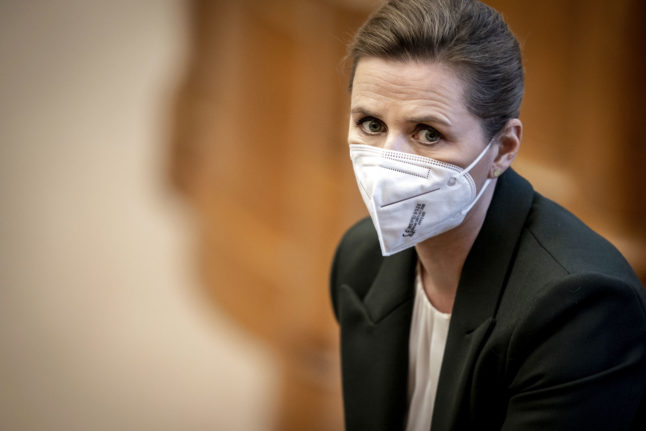The government maintained from the outset that the decision was taken by politicians, the PM argued in parliament on Wednesday.
“I do not agree that the government may have left the impression that the government’s decision was based one-to-one on recommendations from health authorities or other authorities,” she said.
An expert group last week concluded that the government, rather than health authorities, was the main driver in the decision to implement the lockdown in Denmark at the outset of the Covid-19 pandemic.
Critics have accused Frederiksen of being dishonest with the public by characterising the March 11th, 2020 announcement that Denmark was to go into lockdown as being based on the advice of medical authorities.
READ ALSO: First Danish Covid-19 lockdown decision 'was taken by government'
At the March 11th briefing, Frederiksen said it was “the recommendation of health authorities that we close down all unnecessary activity in (societal) areas for a period of time. We are applying a principle of caution.”
But that quote does not conform with the overall context given during the briefing, at which the lockdown was announced and explained, she said on Wednesday.
“That was in no way what was meant by the sentence in question, that was not the message at that press briefing or the many following press briefings,” she said.
“It is harsh to take individual lines out of all the communication coming from the government in a crisis like this,” she added.
The prime minister made the comments in response to a question submitted by the Danish People’s Party, which has called for her to respond over the report.
Denmark’s response to the original wave of Covid-19 was generally praised for keeping the strain on hospitals within overall capacity and for limiting the number of deaths.
The country has registered 2,170 death due to the coronavirus since the outset of the pandemic. More than half of these have occurred since late November 2020, when the country was hit by a severe second wave of infections.



 Please whitelist us to continue reading.
Please whitelist us to continue reading.
Member comments